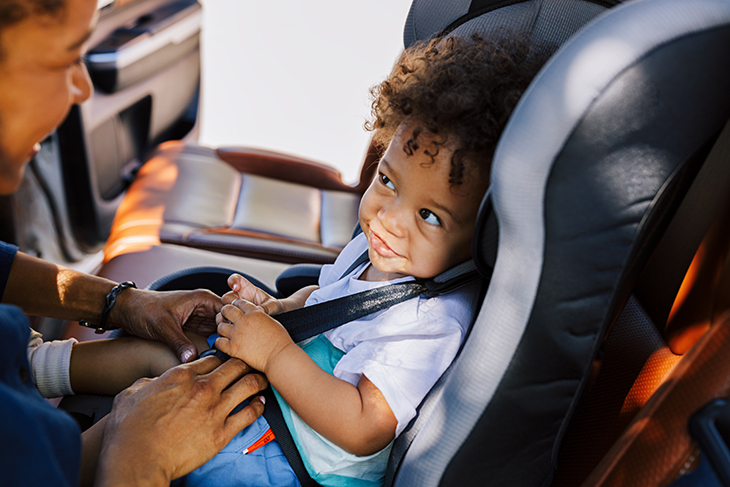National Child Passenger Safety Week | September 17 – 23, 2023
Car crashes are a leading cause of death for children. In 2020, 607 children under age 13 were killed in motor vehicle crashes, according to an injury fact report from the National Safety Council (NSC). Properly securing children in car seats that meet federal motor vehicle safety standards goes a long way in keeping them safe. The NSC believes child restraint systems should go beyond state requirements, because too often state laws are no match for the laws of physics.
Data collection among child passenger safety technicians is essential to improving safety for children. Correct use of car seats, booster seats, and seat belts are vital to preventing injuries and fatalities during vehicle crashes, while accurate and standardized information on car seat misuse is necessary to understand the scope of the problem.
Below are some tips on child passenger safety from the NSC:
- Read the NSC position statement on child restraints, which addresses child passenger safety among multiple modes of transportation. You can read it here: https://www.nsc.org/.../nsc-child-passenger-restraint-policy
- Take advantage of car seat safety checks held nationwide during National Child Passenger Safety Week
- If you're pregnant, schedule a car seat installation with a certified child passenger safety technician before the child is born
- Children should ride in the back seat at least through age 12
- If your children complain about wearing seat belts, don't negotiate — don't drive off until they buckle up
- Always be consistent and wear your seat belt; driver safety belt use strongly influences whether your child will buckle up
- The life of a car seat typically ranges from six to 10 years; be sure to identify the expiration date set by the manufacturer of the seat being used
- Recalls for child seat manufacturers for the past 10 years can be found here: https://www.nhtsa.gov/recalls#car-seats
- Air bags can save the lives of older children and adults, but they can be fatal for young children when not seated correctly, particularly in the front seat. Never place a rear-facing car seat in a front seat near an air bag
- Always read instructions provided by the vehicle and car seat manufacturers for properly securing children in all seating positions
To learn more about National Child Safety Week, visit: https://www.nsc.org/.../child.../child-passenger-safety-home
Credit: National Safety Council (NSC)
Learn more about HazTek Safety Consulting.
